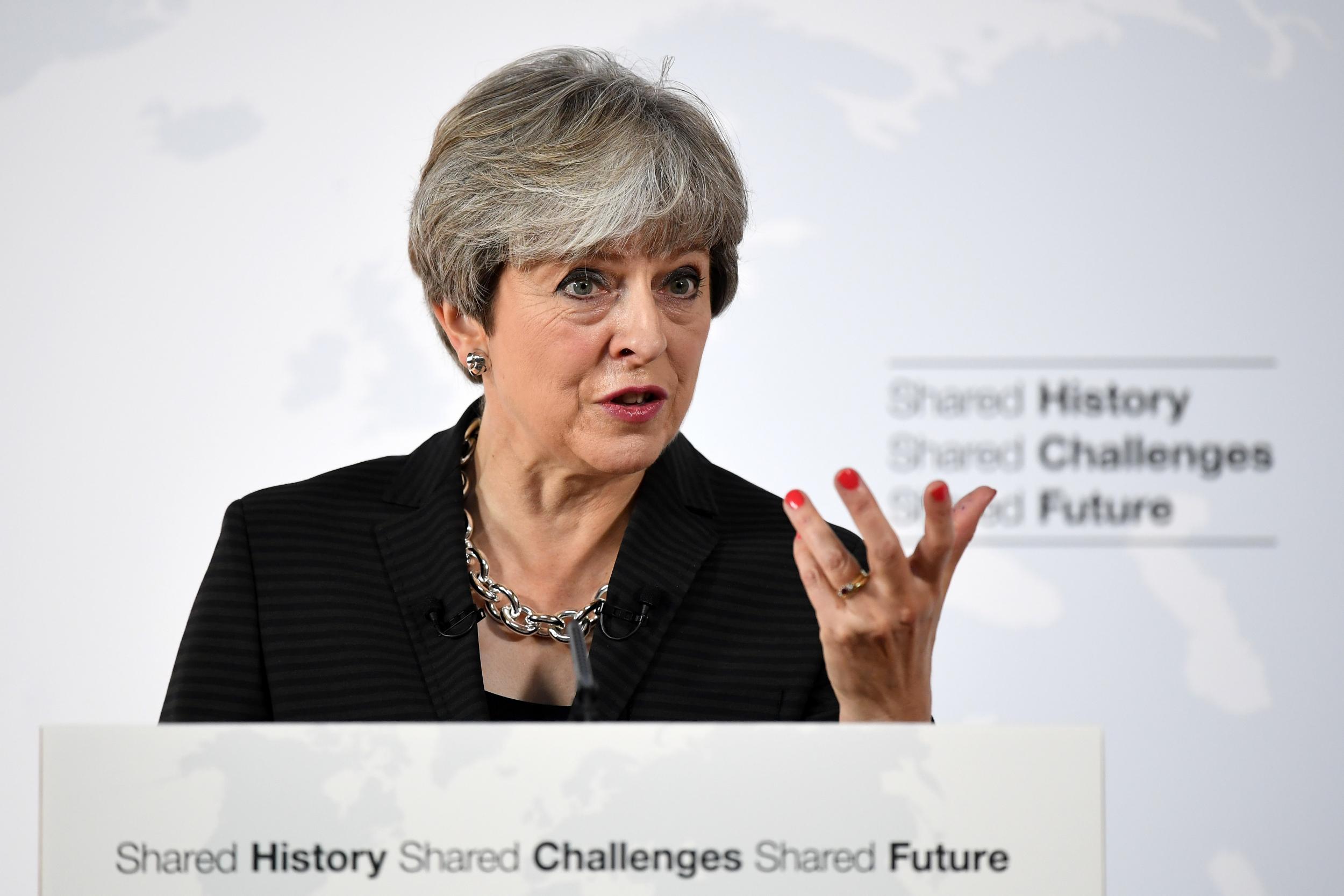Your support helps us to tell the story
From reproductive rights to climate change to Big Tech, The Independent is on the ground when the story is developing. Whether it's investigating the financials of Elon Musk's pro-Trump PAC or producing our latest documentary, 'The A Word', which shines a light on the American women fighting for reproductive rights, we know how important it is to parse out the facts from the messaging.
At such a critical moment in US history, we need reporters on the ground. Your donation allows us to keep sending journalists to speak to both sides of the story.
The Independent is trusted by Americans across the entire political spectrum. And unlike many other quality news outlets, we choose not to lock Americans out of our reporting and analysis with paywalls. We believe quality journalism should be available to everyone, paid for by those who can afford it.
Your support makes all the difference.Britain has not made “sufficient progress” in Brexit talks with the EU for trade or transition discussions to begin, the EU has said – despite Theresa May’s Florence speech having created “a new dynamic” in negotiations.
Speaking at the end of the latest round, EU chief negotiator Michel Barnier told reporters in Brussels that “clarity” had been reached on a number of issues – but warned that the EU-imposed starting line to move to trade talks could still be “months” away.
The main stumbling block for the talks appears to still be Britain’s divorce bill, which Mr Barnier is insisting on settling before trade talks, or discussions about a transition period, can begin.
David Davis at the start of the week insisted that talks about the divorce bill needed to take place alongside the transition period, but Mr Barnier hit back at the suggestion on Thursday, arguing that there was no “logical and coherent link” between the two issues that meant they had to be discussed together.
Striking an optimistic tone but delivering a disappointing message for the UK, Mr Barnier said: “The Prime Minister’s speech in Florence has created a new dynamic in our negotiations.”
But he added: “We have had a constructive week, yes, but we are not yet there in terms of sufficient progress and more work is needed in the coming weeks and coming months.
“In three weeks from now the October European council will be an opportunity for me to talk of the negotiations with Presidents Juncker and Tusk, and the 27 heads of states and government.
“I also look forward next week to the European Parliament’s resolution, which is important. I hope that the new dynamic created by prime minister May’s speech will continue to inform our work.”
The statement by Mr Barnier suggests that Theresa May is likely to miss out on gaining “sufficient progress” by the October European Council summit, as had been hoped, despite the renewed push for a deal.
Brexit Secretary David Davis meanwhile said “decisive steps forward” had been made “thanks to the constructive and determined way” both teams had approached talks.

Despite sufficient progress not being reached the Brexit Secretary struck an extremely positive – almost triumphalist – tone, arguing that there had been “made considerable progress on the issues that matter” and that with “continued dilligence” the talks could be sorted.
Mr Davis said he believed the transitional agreement – first officially floated by the UK in Theresa May’s speech in Florence – could be “quick to agree once Michel [Barnier] has a mandate to discuss it with us”. The arrangement would see Britain remain in the single market for a time-limited period of around two years.
The EU has consistently said it will not discuss the UK’s future relationship with the EU, which includes trade and transition periods, until “sufficient progress” has been made on what it calls “separation issues”.
These issues are mostly what will happen to the Northern Ireland border, the rights of EU citizens living in Britain, and how much Britain will pay to cover its liabilities when it leaves the EU.

Join our commenting forum
Join thought-provoking conversations, follow other Independent readers and see their replies
Comments